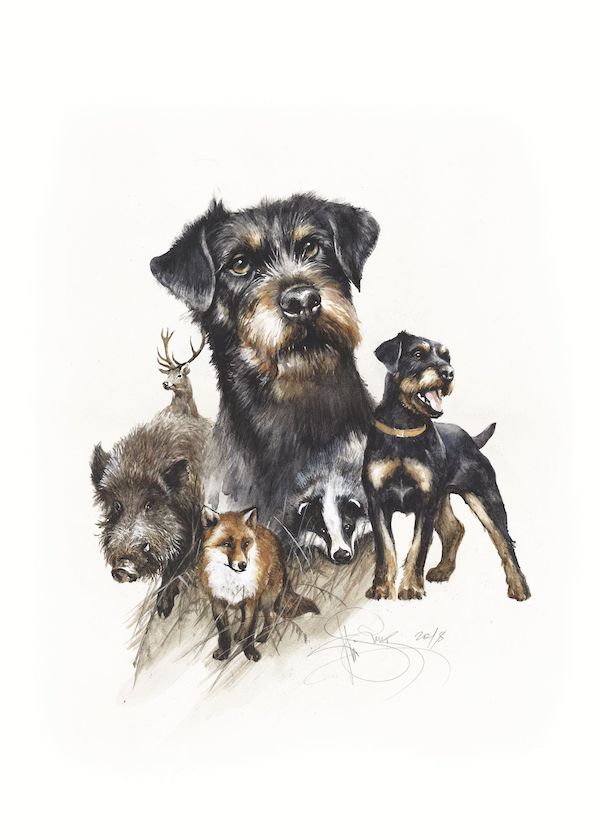
If you own a continental-type gun dog or working terrier breed and you hunt, you may already known the German terms, sichlaut and spurlaut. Such dogs can be one or the other, but some can be both.
Sichlaut literally means, “sight loud,” and it refers to a dog that is loud at the sight of game (which is to say he barks while in visual pursuit). If the dog is spurlaut, he barks when he’s hot on the scent of game. Some dogs are both, and from a hunter’s perspective, this is not only a desired trait, but a required one to be eligible to run optional 24 or 48 hour blood track tests.
Jagdterriers, for example, are supposed to be either “open” on scent (spurlaut) or sight (sichlaut), and a totally silent dog (or a “babble mouthed dog, for that matter) would be considered undesirable by the parent club, if not a dog to be culled back in the day.
Among German hunters, there is another term: “Standlaut.” This isn’t tested for, nor not it appear in regulations, but among big game hunters, it’s an important trait. It means that the dog can “fix” an exhausted or wounded animal by circling and giving constant tongue, typically a rather a deep bark. Similar, but at higher frequency is “dead game baying,” or “totverbellen.” Totverbeller is used to refer to the dog that finds the dead animal and ‘bells’ (or barks) to indicate he has found the deer.
Image: Jagdterrier by Valery of SiurhaArt is available as a print here.
